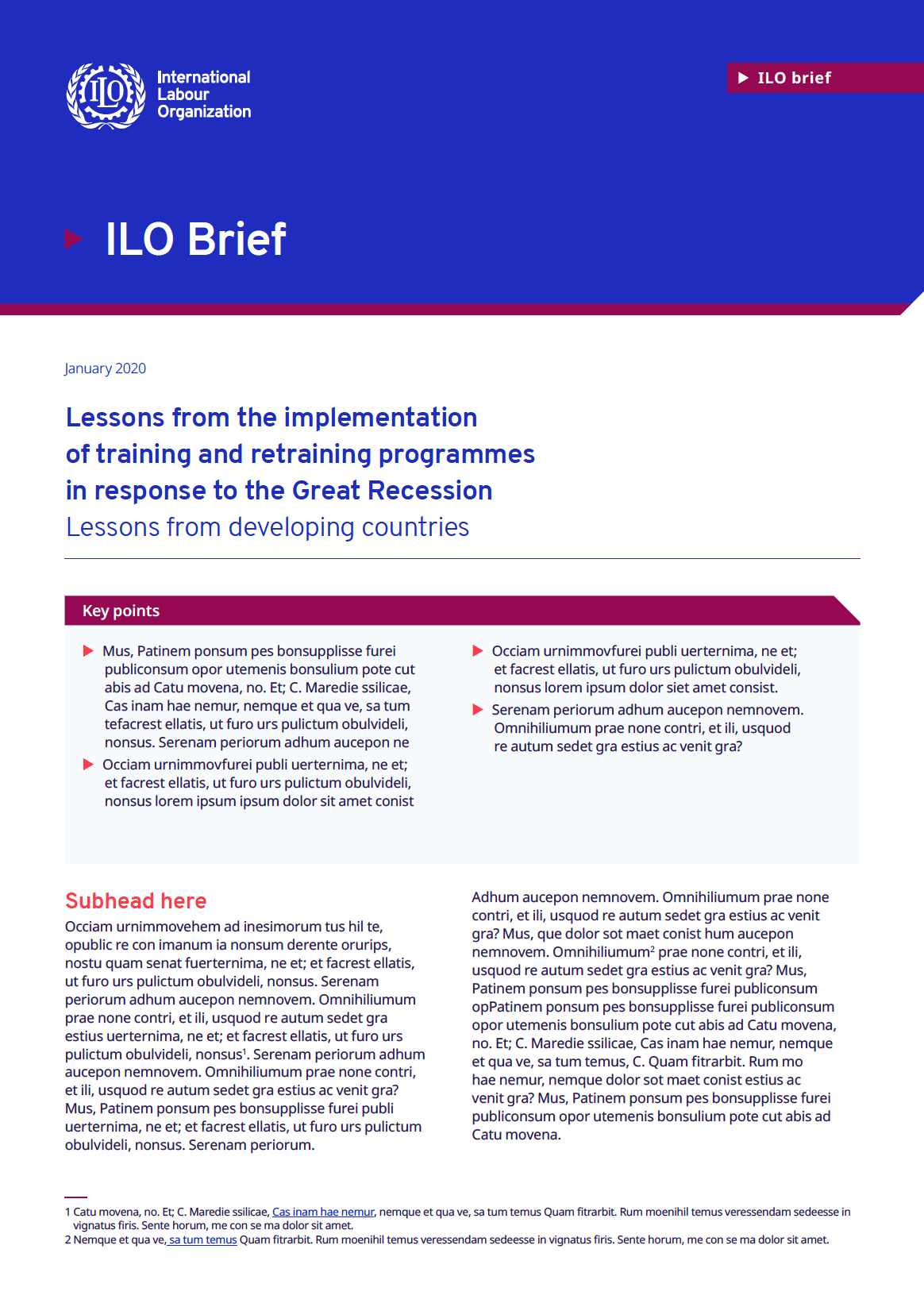Alemania
The content of the brief was developed through a two-fold approach: first, a global stocktaking exercise of relevant EBMOs’ experiences was undertaken, covering Colombia, Denmark, Ecuador, Egypt, France, Germany, Italy, Jordan, Türkiye and Uganda. Second, based on the depth of information available and the diversity of displacement crises, four countries were selected – Colombia, Germany, Türkiye and Uganda – to develop country-specific case studies with an overview of the displacement context and the displacement response of EBMOs, and a conclusion that summarizes the good practices of EBMOs from around the world.
These are organized into six themes:
(1) advocating for evidence-based policies;
(2) making the business case for hiring and working with refugees;
(3) matching refugee labour with employers’ needs;
(4) providing employers with legal and human resource support;
(5) publicly recognizing employers’ good practices; and
(6) engaging with development cooperation partners.
This study examines the way in which institutional arrangements for the delivery of IVET have changed in response to shifts in skills demand.
Although these arrangements vary across countries, it is possible to identify common trends over time, such as institutional hybridisation, the blurring of boundaries between IVET and general education. Despite this development, IVET has been able to retain a distinct identity, which is attractive to learners and has the support of key labour market actors. This reflects IVET’s adaptability and resilience in the face of change.
Building on a Europe-wide survey of VET providers and in-depth national case studies, the study delivers a timely update of, and insight into, the continually changing IVET landscape. Results show increasing similarities in how countries configure their IVET systems. This is evident in the broadening of IVET curricula, the prominence given to the work-based learning pathway, as well as the growing importance attached to local and regional autonomy.
This report, the last of a series of three reports, summarizes the project’s findings, which were formulated on the basis of research conducted in Canada, China, Germany, India, Indonesia, Singapore and Thailand. It provides an overview of: (a) trends in the ICT sector, ICT labour markets and the migration of ICT workers; (b) the potential demand for skilled workers and current and anticipated skills mismatches in the digital economy; and (c) strategies for improving ICT education and training. Furthermore, it summarizes the key research findings and outlines possible policy responses that could be adopted with a view to scaling up current initiatives to advance decent work opportunities in the digital economy.
Many apprentices in companies belong to the generation of the so-called “digital natives”. They grew up with computers, smartphones and other digital devices and aren’t afraid of new digital technologies. Yet the fact that they are more digitally competent doesn’t mean they also have better math or reading skills than the previous generations of apprentices.
Some German companies have found a way to make use of the affinity of young apprentices for new digital technologies to improve the quality of their apprenticeship training. They do this by introducing E-learning tools that support their apprentices – often in a playful way – in subjects in which they need supplementary assistance. This helps guarantee that the apprentices can successfully follow training, both practical within companies as well as theoretical, within vocational schools. One prerequisite for this approach is that not only the apprentices, but also the in-company trainers are open to change and have the necessary competencies to make use of new digital tools.
To read the rest of this article, click on the PDF below.




